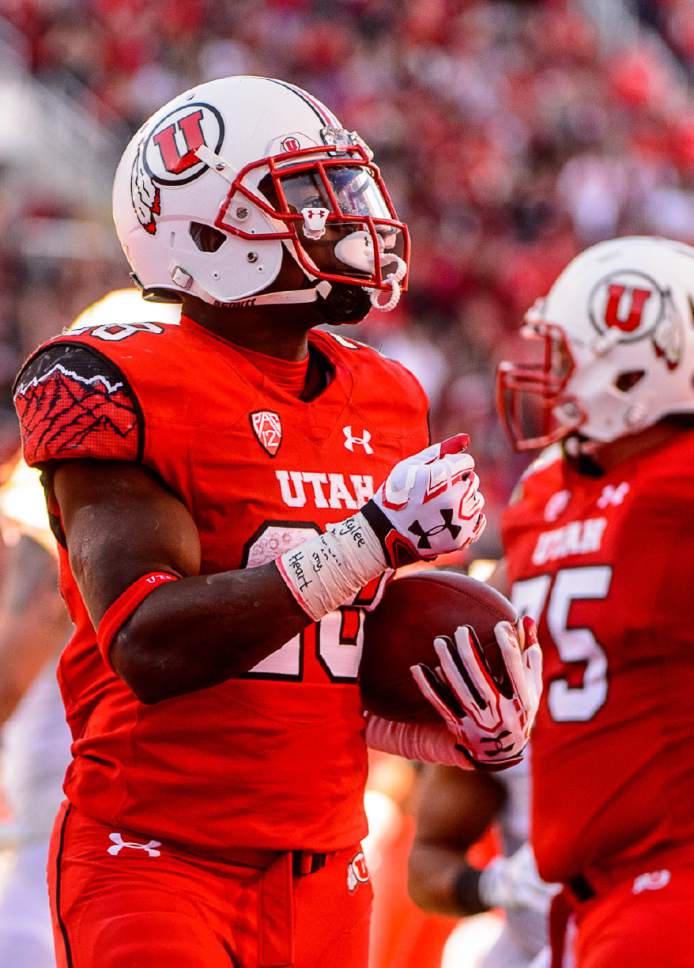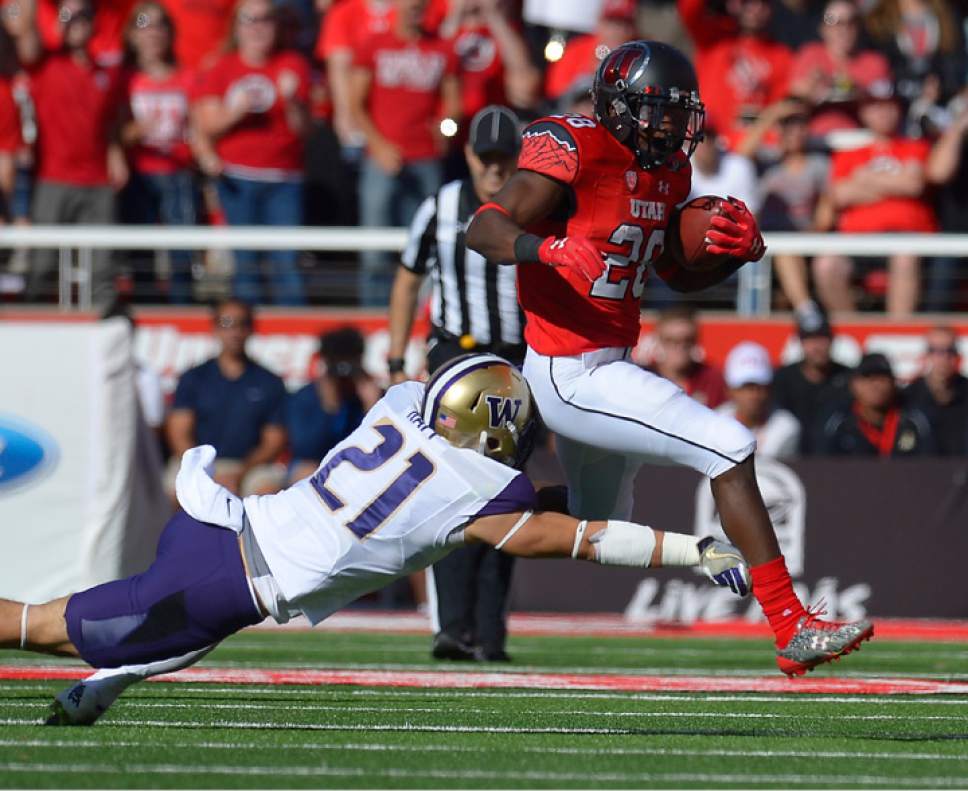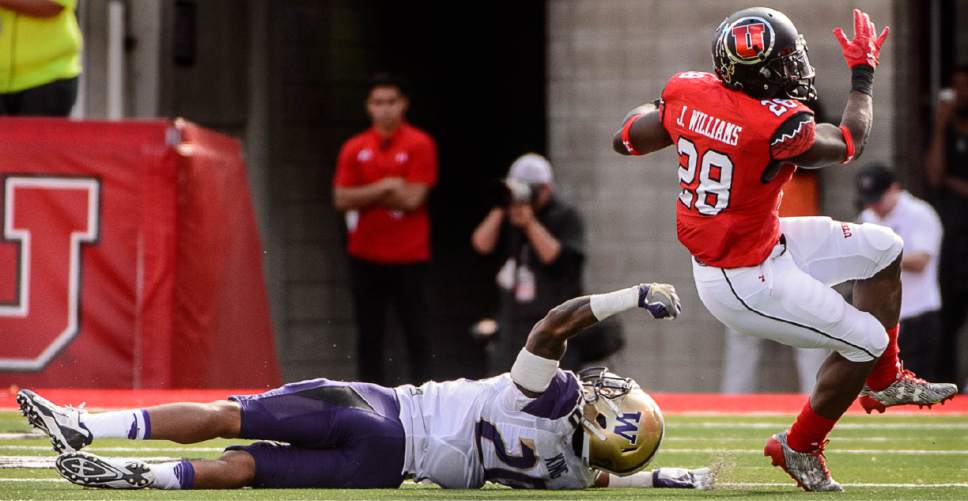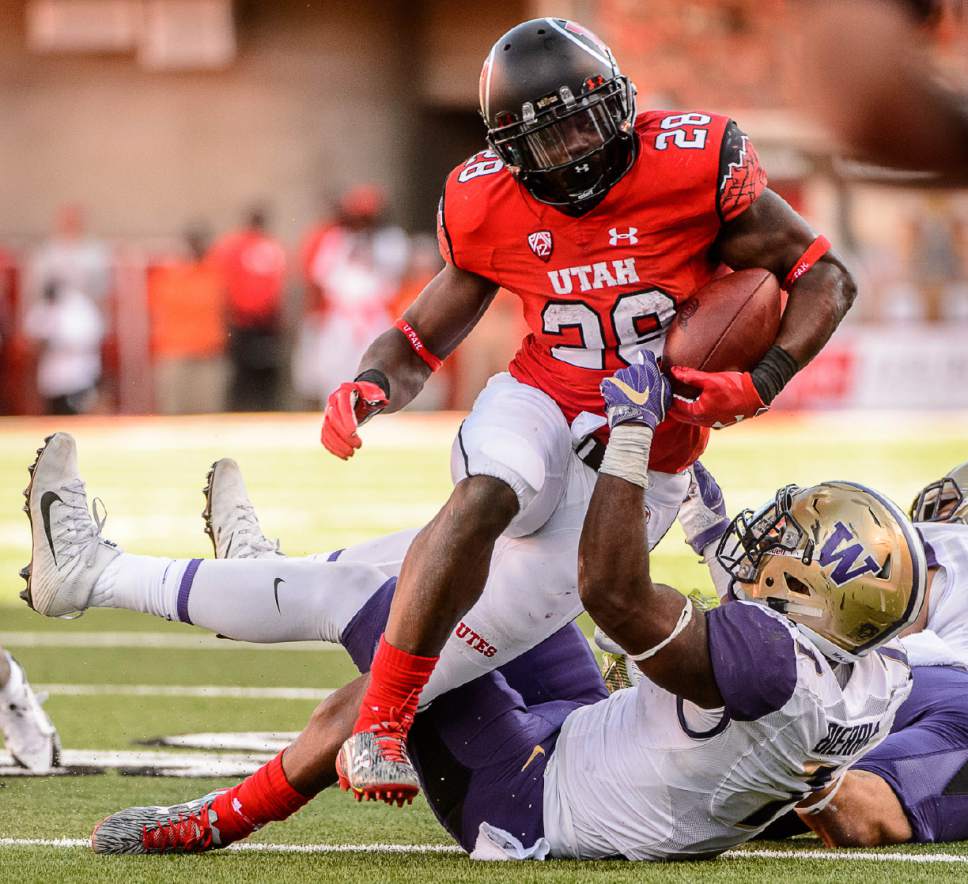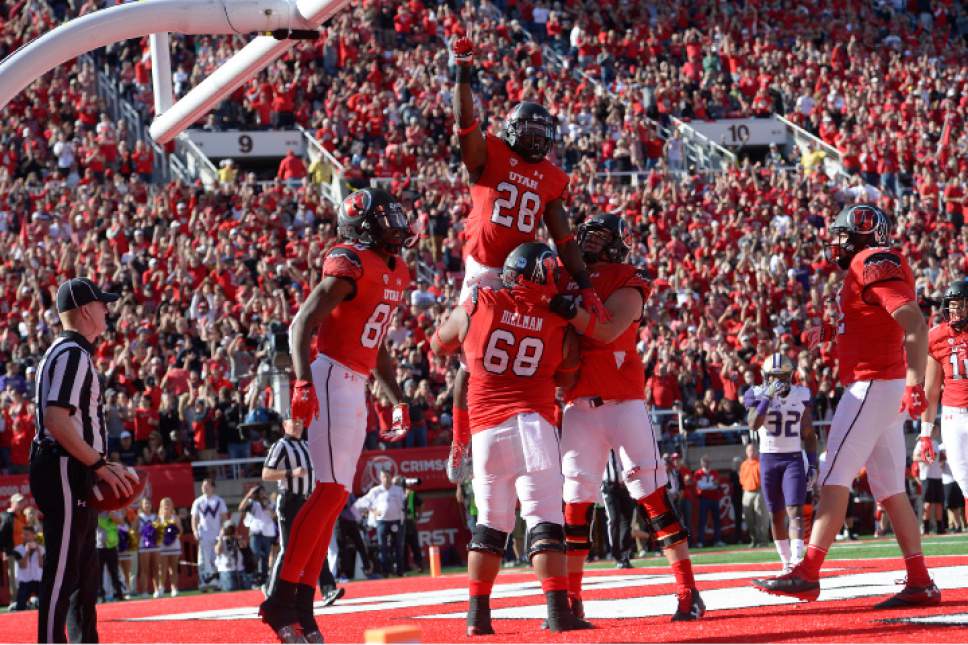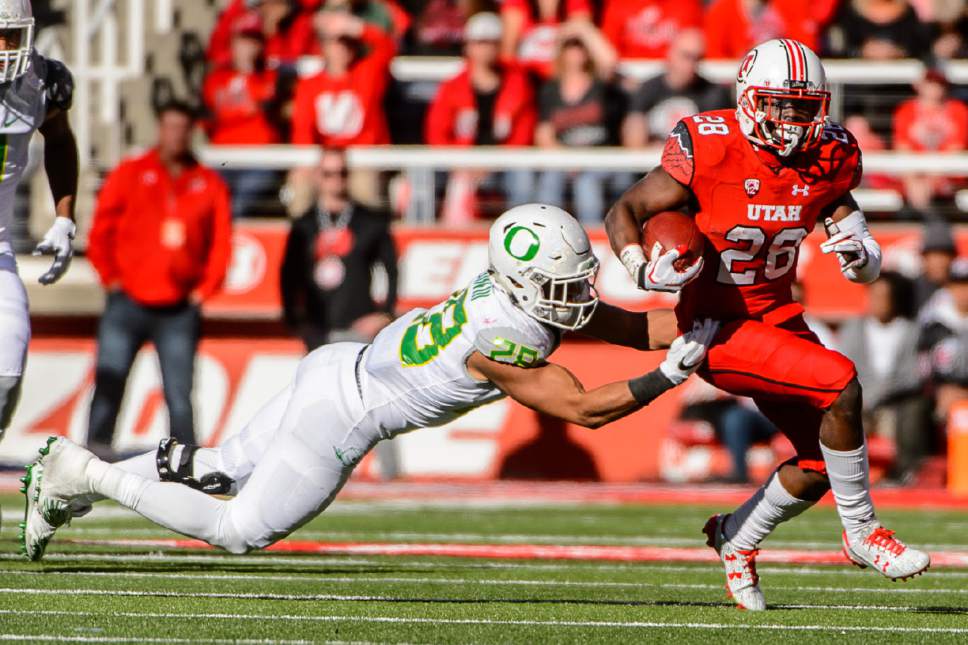This is an archived article that was published on sltrib.com in 2016, and information in the article may be outdated. It is provided only for personal research purposes and may not be reprinted.
It's one of the best stories of the year in all of college football, a singularly familiar one by now, maybe even on the verge of being taken for granted around here, but it amazes, nonetheless. This thing Joe Williams has pulled off. And if the Utes had made good on either of a couple more opportunities for wins, the Utah running back's name would be known even more widely across the land.
His account is an uncommon tale, a path taken and a narrative written that transformed what's perceived to be a negative into a positive.
How often does a player come into his senior season, projected to be all this and that, replacing a starter who has moved on to the NFL, having shown major potential with his 4.35 speed in short glimpses the previous season, then start the new year looking like a mess, getting yelled at by his coach, embarrassed in front of everyone, getting benched, then quitting the game, walking out on his teammates because the game no longer suits his purposes, then, after taking a month off, after other running backs get hurt, he's asked to un-retire, and when he does, he goes berserk, rushing for more yards than nearly everyone else in the country over that span — 1,013 to be exact?
OK, that's a run-on sentence, but why not, in honor of a player who runs on and on and on.
Not only is the Williams story rare, it has a measure of mystery to it.
More than a measure, a mountain.
What in the name of Mickey Spillane happened here?
A couple of weeks in, Williams said he had tired of the game he once loved, his body beaten up, his will evaporated, his ability to hang onto the ball without fumbling in question, his starting position taken from him, his existence outside of football lining up nicely for the future. He was engaged to his girl, shoring up his degree, looking ahead to the rest of his bright and promising life, looking forward to not waking up with pains from head to heel. He called his circumstance inside the chase, "overwhelming."
"This is a hard sport," he said.
And so, he talked to Kyle Whittingham and told him he was checking out. Moving on. Searching for purpose in other pursuits.
Whittingham said "OK."
There were no hard feelings about Williams quitting. At least there were said to be none. But that's a step backward into a weird world, a world that athletes — and many others — are taught from a young age to always avoid, come what may. What did Grandma always say? "Quitters never win." Or maybe it was, "Pain is temporary. Quitting lasts forever." Either way, if we all had a nickel for every time we heard a coach or a mentor say, "Never give up, never give in, never quit," we'd all be richer than King Farouk.
Williams quit, anyway.
It's possible that Whittingham was comfortable losing his senior RB because he had two freshmen who'd been outperforming him, anyway: Armand Shyne and Zack Moss, plus he had Troy McCormick, as well.
And then, one by one, they all got hurt. And Whittingham no longer was comfortable.
Remarkably, he and other coaches asked Williams back, remarkably, Williams' teammates asked him back, and, remarkably, Williams came back.
On the day he retired, Williams said: "I'm going to be happy with my decision down the road."
That road was traveled for all of 29 days.
During his time away, Williams apparently found everything he'd lost, everything that had turned to vapor. He found health. He found focus. He found desire. He found a secure handle. He found competitive drive.
The question is … how?
Nobody really knows and Williams isn't being overly specific about what took place during his sabbatical.
"I was in a different place when I decided to leave," he said. "I guess I came back a different person."
A theory: Williams was kidnapped by aliens, extraterrestrials who poked and probed his body, injecting some sort of otherworldly capability into his system, turbocharging not just his legs, but his energy, his outlook, his being.
Another theory: He was kidnapped, and taken to a secret lab in the hinterlands, where scientists rebuilt him with bionics.
Another: He was kissed by the angels.
Ridiculous, right?
So is what he's done since.
Without Williams, it's likely the Utes would have lost more games, such as at Oregon State and at UCLA. He was a significant part of their offense in those outings, just the way he has been in every subsequent game. Against the Bruins, he ran for a school single-game record 332 yards on 29 carries. He had four touchdown runs that day, including a 43-yarder, a 55-yarder, and a 64-yarder. He had jets on his cleats, and no Bruin defender could fly with him.
After that game, quarterback Troy Williams said: "It's fun to watch Joe running down the field like that."
Offensive lineman and team leader Isaac Asiata said this: "His whole mindset is different. He's running with purpose. That's a great running back."
And, so, the man who walked away from his team because he'd had enough, the Utes' prodigal son, returned this season and boosted that team in a way nobody could have known, not even Williams himself.
His game rushing totals since coming back: 179, 332, 172, 181, 149.
His game rushing totals before leaving: 49 and 26.
All told, with Saturday's regular-season finale remaining at Colorado, he's rushed for 1,088 yards. And he missed four entire games. His average per carry: 6.9 yards.
Not sure whether Williams will play football in the NFL, but it certainly looks as though he could if he chooses to. That would cap his most uncommon story nicely — from football retiree to football professional. Quitting, at least temporarily, may not be Grandma's — or anybody else's — prescribed way, but for this Joe, it made his story better. It made it extraordinary.
Turns out, quitters sometimes do win.
GORDON MONSON hosts "The Big Show" with Spence Checketts weekdays from 3-7 p.m. on the Zone Sports Network, 97.5 FM and 1280 AM. Twitter: @GordonMonson.


